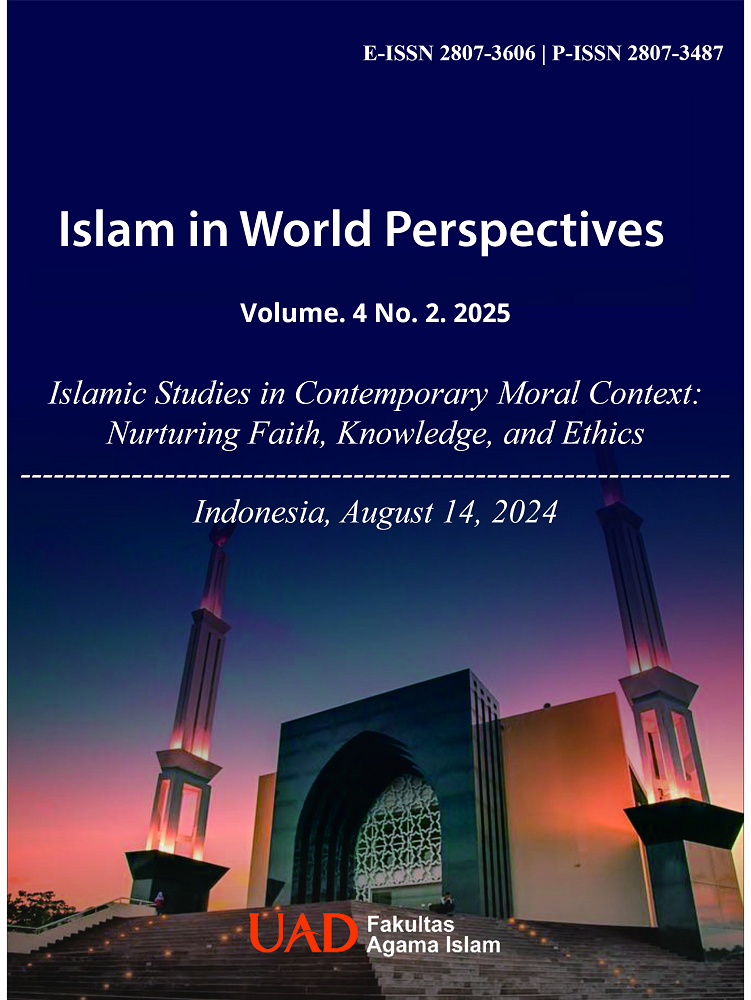Improving the Quality of Learning Islamic Values in Madrasah Through Collaborative Methods
Abstract
This study examines the application of collaborative methods in teaching Islamic values in madrassas and their implications for educational effectiveness. The design of this study involved subjects from several madrasas who had adopted a collaborative method, which was selected through purposive sampling to ensure participants who had first-hand experience in this approach. Data collection was carried out using three main methods: in-depth interviews, participatory observation, and document analysis. The data analysis followed a phenomenological procedure to capture the participants' lived experiences. To ensure the validity and reliability of the data, source triangulation techniques and member checks are used. The analysis shows that the collaborative method significantly increases the involvement of students, teachers, and parents in the learning process, as well as deepens the understanding and application of Islamic values by students. Challenges in implementing these methods, such as resource limitations and resistance to change, can be overcome through comprehensive training and strong policy support. These findings indicate the need for curriculum revision in madrasas to accommodate collaborative methods and the development of technological infrastructure that supports collaborative learning. This research is expected to contribute to improving the quality of Islamic education in madrassas through innovative strategies involving various related parties
Downloads
Published
Issue
Section
License
Copyright (c) 2024 Kharis Syuhud Mujahada, Lukman Nur Hakim, Adin Suryadin

This work is licensed under a Creative Commons Attribution-ShareAlike 4.0 International License.
Authors who publish with Islam in world perspectives agree to the following terms:
- Authors retain copyright and grant the journal right of first publication with the work simultaneously licensed under a Creative Commons Attribution License (CC BY-SA 4.0) that allows others to share the work with an acknowledgment of the work's authorship and initial publication in this journal.
- Authors are able to enter into separate, additional contractual arrangements for the non-exclusive distribution of the journal's published version of the work (e.g., post it to an institutional repository or publish it in a book), with an acknowledgment of its initial publication in this journal.
- Authors are permitted and encouraged to post their work online (e.g., in institutional repositories or on their website) prior to and during the submission process, as it can lead to productive exchanges, as well as earlier and greater citation of published work.

This work is licensed under a Creative Commons Attribution-ShareAlike 4.0 International License.



